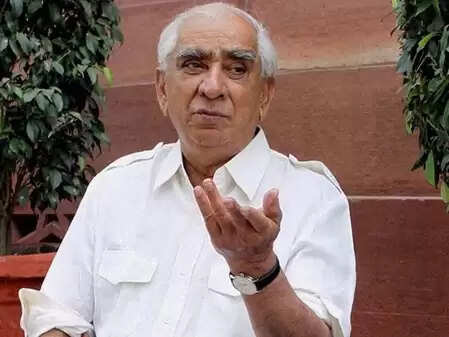New -Delhi, September 26 (IANS). Jaswant Singh, the veteran of Indian politics and one of the founding leaders of the Bharatiya Janata party, is still nominated with respect. The politician, who took on the order of important ministries of the army’s major to foreign, defense and finance, gave a new direction to the country’s diplomacy and politics with his impunity and principles. The life of Jaswant Singh, called Vajpayee’s ‘Hanuman’, is a unique saga of courage, self -respect and rebellion. Jaswant Singh was a senior politician of the Bharatiya Janata Party (BJP), who used former Prime Minister Atal Bihari Vajpayee to call his ‘Hanuman’. Even today, he is remembered for his humility, morality and impunity. Jaswant Singh was one of the rare leaders who had the distinction of India to become defense, finance and foreign ministers. His life was from the heights of successes to the depths of rebellion. On January 3, 1938, Jaswant Singh, who grew up in a Rajput family in Jasol, a small village in the Barmer district of Rajasthan, has learned discipline and patriotism since childhood. After completing his education, he joined the Indian army. Artillery reached the post of Major in the regiment. In the 1960s, resigned from the army and entered politics. In the first days he joined the Jana Sangh, which later became the BJP. Rajya Sabha member was elected in 1980, which was the beginning of his long parliamentary journey. From 1991 to 2014 he was a five -time lure Sabha member. This journey from the Sandy Land of Rajasthan to the throne of Delhi was a symbol of his hard work. Jaswant Singh’s real identity in political career was associated with the Vajpayee government. In 1996 he became the Minister of Finance in the NDA government of only 13 days. In the tenure of 1998-2004 he takes on different fronts. As Foreign Minister from 1998 to 2002, he gave a new direction to India’s diplomacy. He placed India’s side on international forums amid the sanctions that the US instituted after the Pokhran nuclear test. His role in normalizing the relationship with Pakistan was commendable. By becoming the Minister of Defense in 2002-2004, he emphasizes the modernization of the army after the Kargil War. As finance minister, he accelerated economic reforms, although the Kandahar Hijack scandal influenced his image. In 1999, in the kidnapping of the Indian Airlines flight IC-814, he decided to release terrorists as the then Foreign Minister, which was political criticism. Jaswant Singh’s impunity also associated him with controversies. In 2009, his book ‘Jinnah: India, Partition, Independence’ created a Ruckus. In this, he described Jinnah as ‘secular’, which exposed the BJP from primary membership. In the 2014 election in Lok Sabha, he fed an independent battle over BJP ticket of Barmer, but lost. After deteriorating health, he came to a wheelchair. He still did not retire from politics. He died on September 27, 2020 at the age of 82, but the echo of his contribution still holds news in the political corridors. Jaswant Singh’s legacy includes diplomatic skills, military experiences and moral courage. As India grows stronger today on the world scene, the memory of leaders like Jaswant Singh teaches us that politics is not just power, but a principle war. -Ians Aks/DSC
Jaswant Singh: Untold Story of Vajpayee from ‘Hanuman’ to rebel politician
